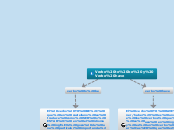por Raul Cordero hace 6 años
239
Verbo to be y Verbo have
El uso de los verbos "to be" y "to have" en inglés es fundamental y varía dependiendo del contexto. "To be" puede traducirse como "ser" o "estar" y su significado depende de la oración.

por Raul Cordero hace 6 años
239

Ver más
Modo interrogativo: Am i?/¿Soy yo? ¿Estoy yo?,Are you?/ ¿Eres tu? ¿Estas tu?,Is he?/ ¿Es el? ¿Esta el?,Is she?/¿Es ella? ¿Esta ella?,Are we? ¿Somos Nosotros? ¿Estamos nosotros?,Are they? ¿Son ellos? ¿Estan ellos?
Ejemplos: Are we lost?/¿Estamos perdidos? am i nice?/¿Soy agradable?
Modo negativo: I am not-No soy/No estoy,You are not-No eres/no estas,He are not-No es/no esta,She ar not-No es/no esta,It are not-No es/no esta,We are not-No somos/no estamos,You are not-No son/no están,They are not-No son/no están.
Ejemplos: They aren't friends/Ellos no son amigos. They aren't brothers/Ellos no son hermanos.
Modo afirmativo: I am-Soy/Estoy,You are-Eres/Estas,He are-El es/esta,She are-Ella es/esta,It are,El/Ella es/esta(p/animales u objetos,We are-Nosotros somos/estamos,You are-ustedes son/están,They are-Ellos son/están.
Ejemplos: We are excited/Estamos emocionados. I am beautiful/Soy Hermosa.